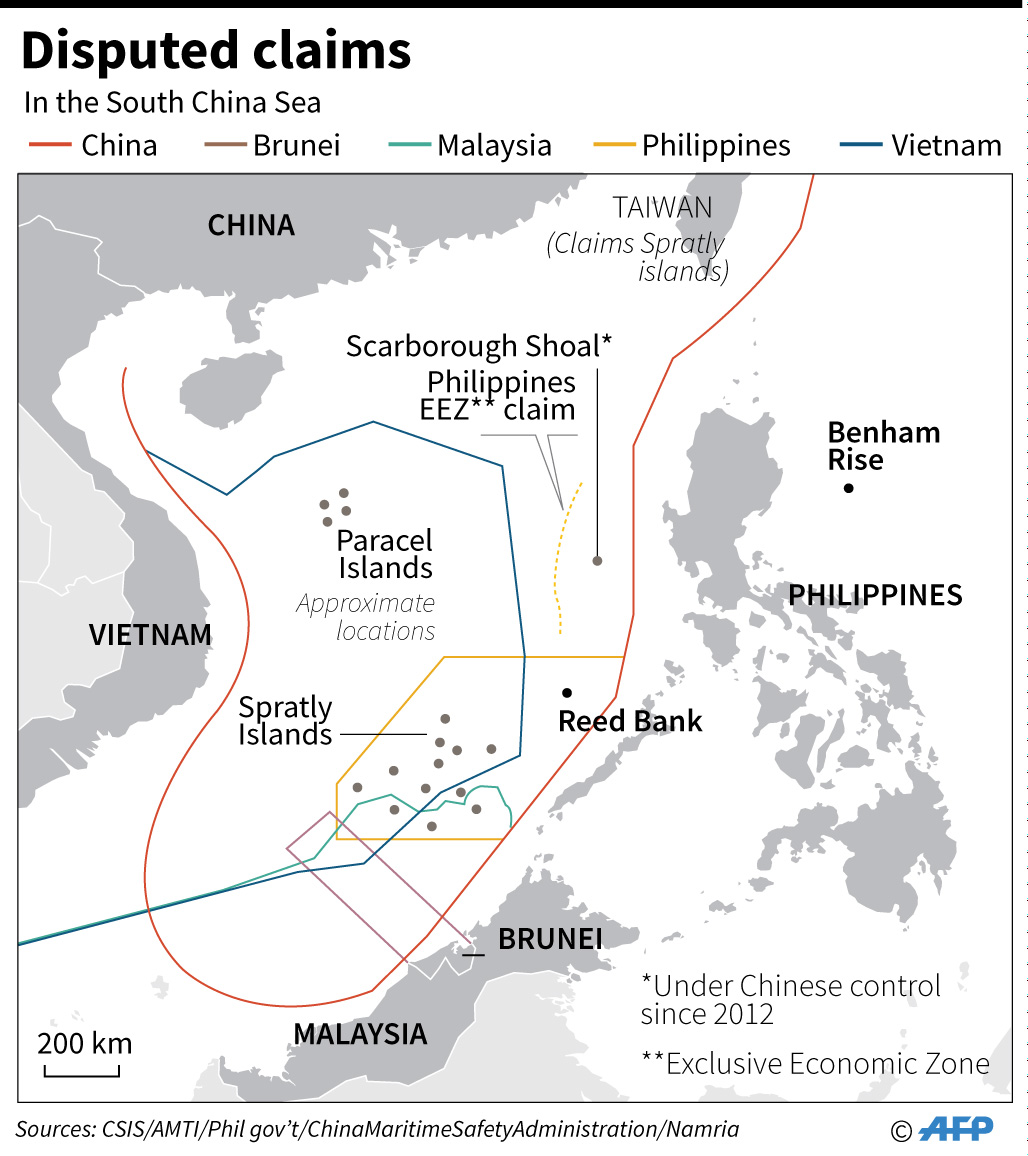Duterte admin won’t pursue multilateral talks to solve South China Sea row

Map showing disputed claims in the South China Sea. Includes locations for Reed Bank and Benham Rise, where Chinese survey ships were seen last year, according to the Philippine government. AFP
MANILA, Philippines — The Philippines would not shift to multilateral talks to tackle dispute over South China Sea, not under the Duterte administration.
A Malacañang official made this statement, maintaining bilateral talks remain “the most effective” approach to deal with Manila’s maritime dispute with Beijing.
“Sa ngayon bilateral muna. Kasi I remember si Presidente noong a year ago, parang hindi siya masyadong hot sa multilateral. Kasi nga eh ang may problema iyong dalawang bansa, ‘di mag-bilateral muna kayo. Siguro if that fails baka maging option iyon, among the claimants,” Presidential Spokesperson and legal counsel Salvador Panelo said in a press briefing.
Panelo also said the Duterte administration is not keen about bringing the Philippines’ arbitration win against China to the United Nations (UN) general assembly at this point.
“Eh sa ngayon nga, wala namang nagri-resolve ‘di ba? Wala ngang gustong makialam eh. So siguro tayo munang dalawa ang mag-usap,” he said.
Article continues after this advertisementPanelo, however, said it would be up to Duterte to decide if the government would pursue a multilateral approach.
Article continues after this advertisement“We will have to wait for the President. The President is the one who charters the foreign policy; that is his right and discretion. We cannot be preempting the President on this,” he said.
During Duterte’s bilateral meeting with President Xi Jinping in Beijing last week, the Chinese leader maintained they do not recognize The Hague ruling that invalidated China’s nine-dash line that covers almost the entire South China Sea.
Despite this, Panelo said, the government is still hopeful Philippines and China would be able to resolve the matter mutually.
“Even if you insist on your side of your position, you can still argue and resolve mutually to both satisfaction, to both sides’ satisfaction on how to deal with that problem,” he said.
“There’s no other option except to talk because we do not want to engage in armed hostilities, whether small armed hostilities or expanded armed hostilities that will be costly to both sides, especially on our side kasi wala naman tayong kakayahan. So pag-usapan natin,” he added.
Panelo further said “you don’t resolve the conflict by going to war or armed hostilities.”
“It will not solve anything. In fact, all the conflicts in the world when not resolved by means of negotiations end up in armed hostilities,” he added. /kga
For comprehensive coverage, in-depth analysis, visit our special page for West Philippine Sea updates. Stay informed with articles, videos, and expert opinions.